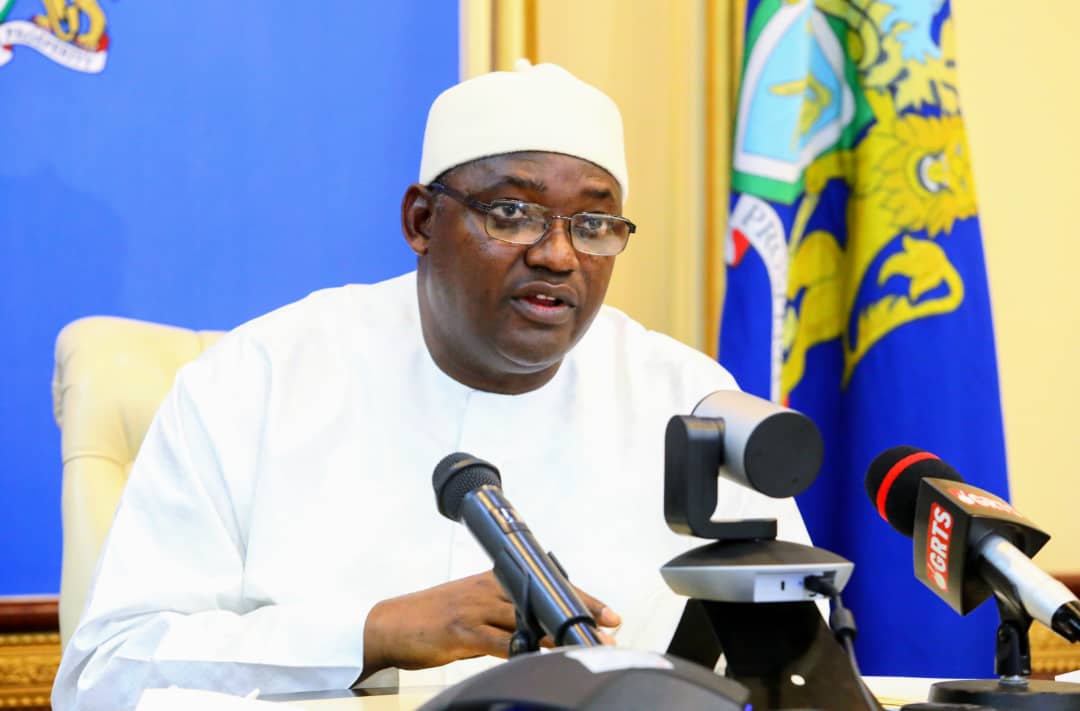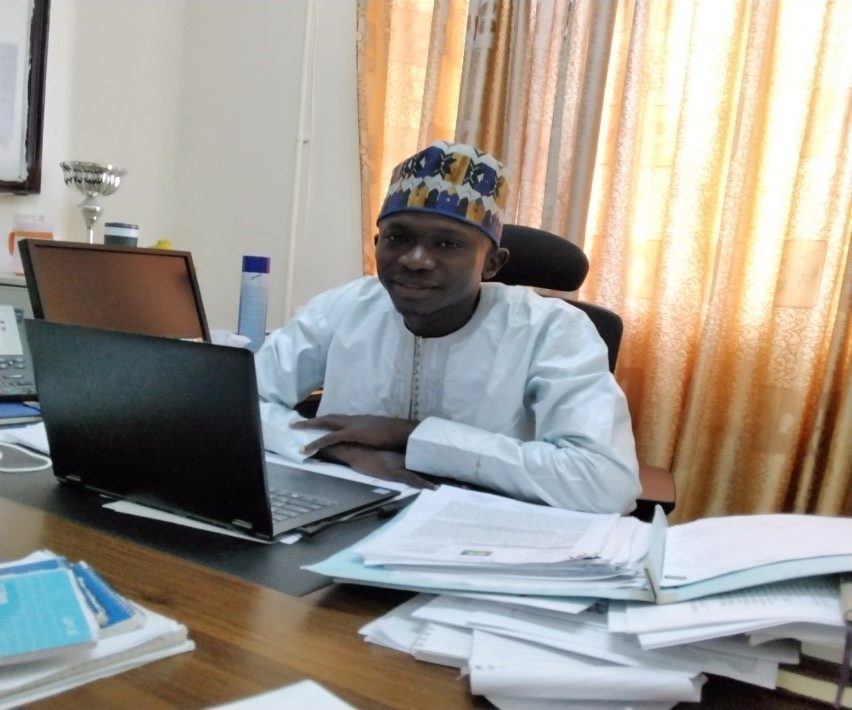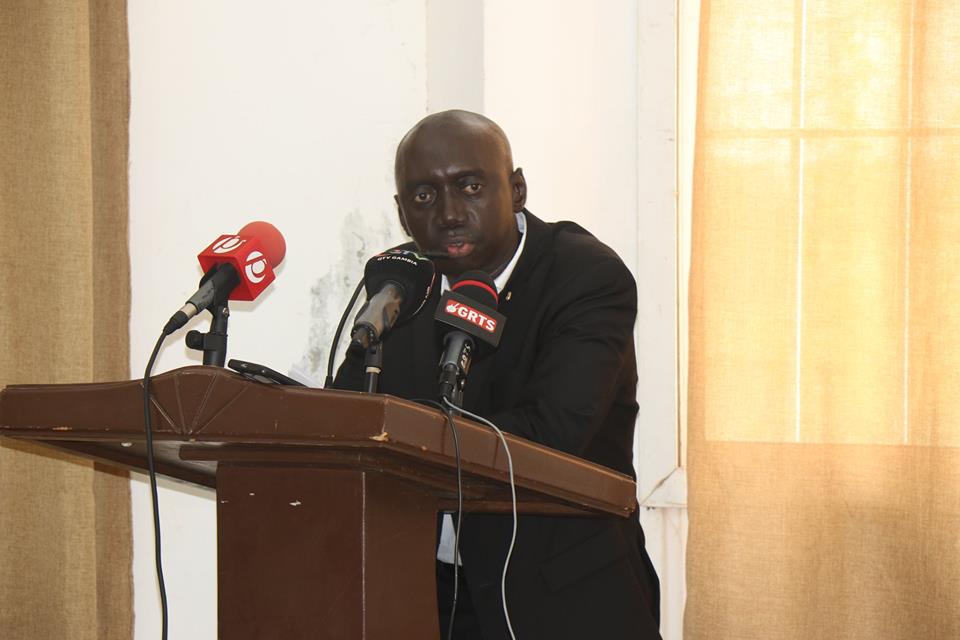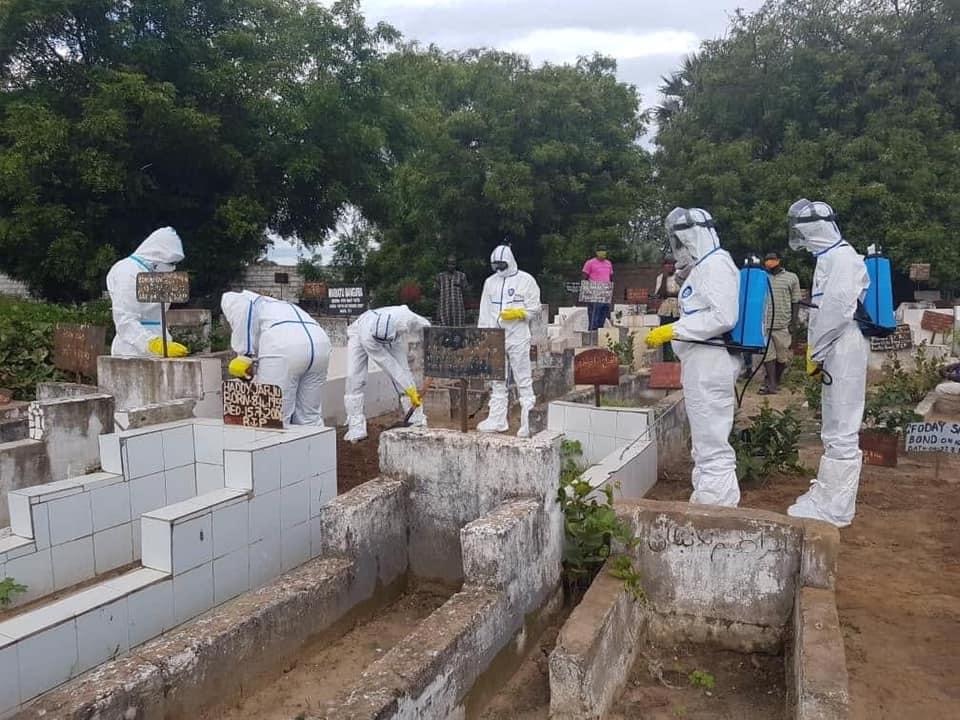President Adama Barrow has said that the pandemic has impacted severely on both the formal and informal sectors of “our” economy.
He told the first virtual extraordinary inter-sessional summit of heads of state and government of the Organisation of African, Caribbean and Pacific States (OACPs), on Wednesday that the need to pay due attention to both sectors is urgent, noting that “our informal sector contributes crucially towards sustaining livelihoods and to GDP”.
“In short, the impact on employment, government revenue and the subsistence of the people is immensely negative. As we hold this Summit on “Transcending the COVID-19 Pandemic: Building Resilience through Global Solidarity”, it is important to place the human being at the centre of our deliberations,” he said.
President Barrow pointed out that the impact of the pandemic on human lives and livelihoods is extremely destructive, stressing that it has disrupted the momentum and gains made towards achieving the Sustainable Development Goals (SDGs) and other development targets.
“Like other countries, The Gambia has adopted measures to contain the spread of the coronavirus. These include declaring a State of Public Emergency, observing WHO regulations and mitigating the impact of such strict measures on the public,” he said.
He added: “Undoubtedly, the containment measures will have multiple effects in both urban and rural settings. Economically, women and the youth are the most vulnerable groups, as their income generating activities centre heavily on the Tourism, Fisheries and Artisanal Industries.”
President Barrow also said that it is imperative that member states seize this opportunity to call upon their development partners to collaborate with them to respond effectively to the economic challenges posed by COVID-19.
“With respect to SDG 11, on sustaining urban settlements, this is particularly relevant for such vulnerable sectors.
“Similarly, we must outline strategies and action points to minimize disruption to the food and agriculture systems, while adequately supporting the livelihoods of all vulnerable groups.
“The collaboration and support of technical agencies, such as the Food and Agriculture Organisation, are vital to address challenges in the value and agri-food supply chains,” he said.
He called for financing development to be central to discussions on building resilient economies and advancing social inclusion and development.
He said, addressing the debt burden on developing countries, expanding fiscal space and fostering domestic resource mobilisation are essential to strengthen socio-economic systems.
“Unfortunately, we have noted with grave concern, the recent unilateral publication of the EU list of High Risk Third Countries on Anti-Money Laundering and Terrorist Financing, effective 1st October, 2020.
“Such blacklisting will adversely affect the economic recovery strategies of many of our member countries in the wake of the COVID-19 pandemic and, further, impact on investments, financial aid and cross border financial transactions within our Organisation.
“We, therefore, call upon the EU and other development partners to cooperate with our member countries, especially in these difficult times.”
President Barrow said ultimately, loss of income to producers and service providers will be greater on cross border and regional trade.
He added that in particular, women entrepreneurs in this venture will be hard hit by the pandemic, with its effects tripling on domestic households.
“As an Organisation, we have the opportunity to leverage our individual comparative advantages to lay the foundation for manufacturing and trade diversification,” he said.
He also told his colleagues that The Gambia welcomes global efforts to strengthen our health systems for universal health coverage and to boost emergency preparedness capacity beyond COVID-19.
He noted that while these initiatives are laudable, emphasis must be put on furthering Intra-ACP collaboration, cooperation and sharing innovative medical approaches, research and treatment among Member States.
He also said that it is equally important to identify means of improving and increasing early warning and response systems that match WHO standards.
President Barrow said amid all these, “solidarity is critical to overcoming our common challenges and achieving our objectives.”





